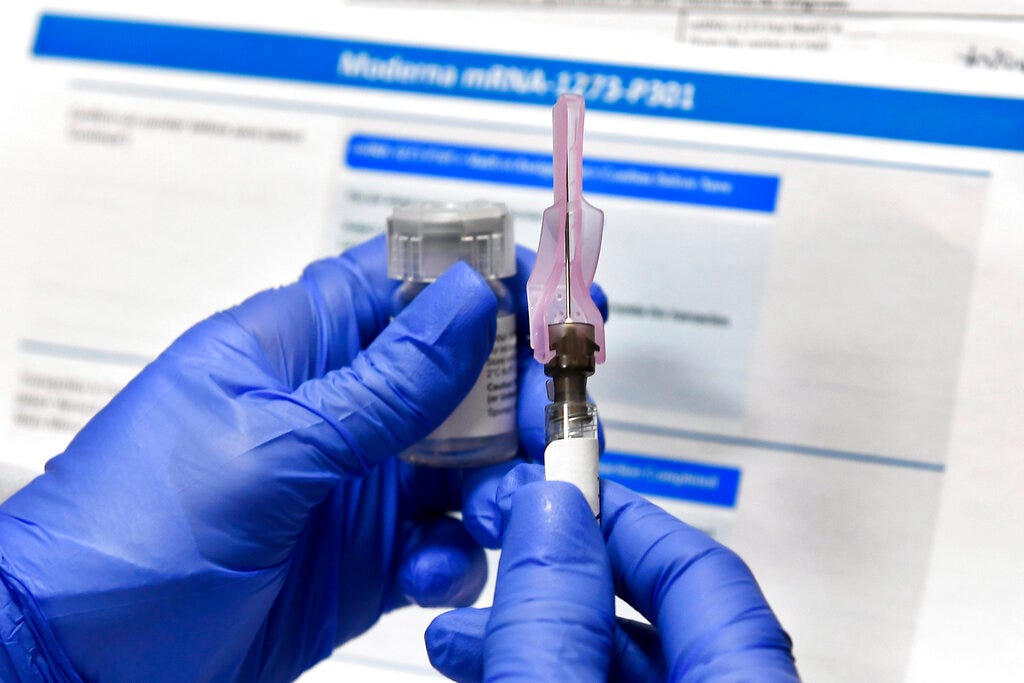
Hans Pennink/AP
- Data on Moderna’s Covid-19 vaccine in young children won’t be available until 2022, CEO says at JPMorgan Healthcare conference.
- The study will take longer because they have to start at a much lower dose.
- Studies have already begun in children ages 12 and up.
- Visit Business Insider’s homepage for more stories.
Moderna will begin studying the Covid-19 vaccine in young children “soon,” but data most likely won’t be available until 2022, CEO Stephane Bancel said Monday at the JPMorgan Virtual Healthcare Conference.
The study on children 11 and younger “will take much longer because we have to age de-escalate and start at a lower dose. So we should not anticipate clinical data in 2021, but more in 2022,” Bancel said.
He added that Moderna is aiming to have the vaccine approval extended to adolescents ages 12 and older by this summer, so they can be vaccinated before returning to middle and high school in September.
Read more: What’s coming next for COVID-19 vaccines? Here’s the latest on 11 leading programs.
Last month, the Food and Drug Administration granted emergency approval to Moderna’s Covid-19 vaccine for ages 18 and older. The vaccine, which has a 94.1% effectiveness rate at protecting people from the virus, relies on messenger RNA to spur the body to produce the Coronavirus spike protein internally. That, in turn, triggers an immune response. Pfizer’s vaccine, which has a similar effectiveness rate, also uses mRNA.
Both Moderna and Pfizer's vaccines require two doses, separated by about a month. During the conference, Bancel said for the Moderna vaccine, the "expectation is that the vaccination should last you at least a year."
The CEO said he expects to deliver between 600 million and 1 billion doses of the vaccine this year, adding up to $11.7 billion in vaccine-related sales, based on current government contracts.
So far, rollout of the Covid-19 vaccines in the U.S. has been slow, according to the Centers for Disease Control and Prevention's tracking dashboard. The vaccine rollout varies by state. Local health officials, often lacking the funds to hire enough staff to administer large amounts of doses, have been tasked with coordinating the vaccination rollout while caring for sick patients.
At the beginning of the year, many state health department told Business Insider they are still sorting out the logistics of who will get vaccinated next, how individuals will be prioritized, and which sites will assist with the immunizations. Now, large sites across the country, like Disneyland Resort, are turning into mass vaccination sites to help with the cause.
